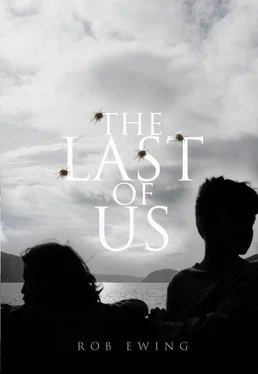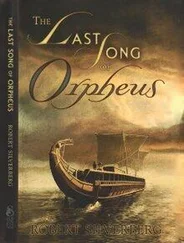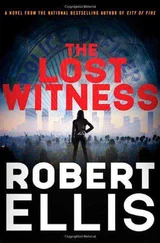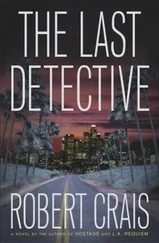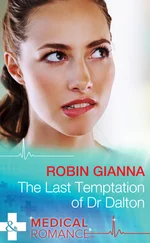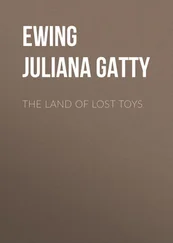‘She delivered the drugs,’ Elizabeth realises.
‘Which makes her important, right? So maybe we should look for the squares of paper?’
‘Maybe.’
It takes us a minute to find them. They’re in five big bundles done up with elastic bands like money, in a back drawer of the dispensary.
Elizabeth counts through twenty. She lays them out on the desk, then goes and fetches Alex’s medicine-pen from her rucksack.
The insulin inside it is called Mixtard.
In another minute we have the names of two people who had the same stuff. Then Elizabeth, after checking a book, writes down some more names.
We look through the piles of paper, until we find three more that are definitely a kind of insulin.
‘One address – see, it’s here in the village, nearby,’ she says, ‘it’s really not far. But after that… how are we going to find all these other places?’
Feeling a happy rush of pride I reply: ‘I know the answer to that as well!’
I’m thinking of the laminate cards that Mum used for her deliveries: the ones she gave for people who were doing the post round and didn’t know the island as well as her. And I think I know where they are.
When you’re alone mist and rain only makes it feel worse. You can’t see where the sky stops and the sea starts.
Every house, every postbox could be the shadow of someone standing still.
It gets me nervous: so I pull the curtains and go into my sleeping bag and begin to count from where I left off—
Seven thousand and one… two, three…
I remember how Mum used to take a breath in when she was listening. The Gael’s Breath , she called it. She did it when other adults were talking: a gasp to say: I’m still paying attention. Like she had to drink as well as hear what they were saying.
Now when I close my eyes she’s there.
She’s doing her talk to the stand-in postman. I go down deep into my bag, down to the crumbs and sweet wrappers and old socks at the bottom, covering up my ears so I can hear her, only her—
‘You’ve the name given by the registrar, ’ she’s saying. ‘Likely a Protestant from the mainland, olden days. Mary for Mairi, James for Seamus and so on. Official letters will bear these names. If the letter’s sent local it might have a familiar name – with reference to the father, mother. Seumas Nèill – Neil’s James, for example. This helps to distinguish him from all the other Jamie MacNeils.’
Mike, the stand-in postman, is trying to write everything down. He has red hair, brown freckles on his hands which are a blur as he tries to write all she says down exact.
‘Just as likely the envelope may bear a nickname. This could relate to appearance, work, habit, even something the person did as a child. For example: I am Mairi a’ Phosst – Mary the Postwoman. Ailean Còcaire – Alan the Cook. My daughter here, Rona Aonranach – Rona on her own. Likes her ain company does this one.’
Mike the stand-in chooses one letter from all the bundles yet to be sorted.
‘ Doo-tang MacLeod. What is this word Doo-tang ?’
Mum wrinkles her nose. ‘Unluckily that’s not a perfect example. It doesn’t mean anything at all.’
‘Oh?’
‘No, it’s a nonsense word.’
Mike, frowning, writes down: nonsense word.
‘So, names covered, we will move on to addresses. As everybody knows everyone there are no house numbers. Equally, no house names. There are some streets numbered, sure – but not many. Accordingly, even if you do find numbers they are often not in the right order. The sequence might be obscure: order of construction, left or right of that wee stream, even peculiar to that street. Perhaps no one knows why some of the numbers are the way they are. To sum up: it isn’t always clear-cut.’
‘Of course…’
‘Also, do not assume that a street exists in one piece . Our forbears liked to name things according to the contours of workable land. For our purpose this means that a village or street may have two halves – two strands – existing either side of a hill or watercourse. You have to imagine following the doors underground . Consider the lie of the land and not what the map wishes to tell you.’
‘Not the map.’
‘Lastly, our letterboxes are often sealed against the wind. In which case you will need a key, available by application from the householder in advance.’
His pen stops moving.
Mum hands over her postbag. ‘I should say it took me ten years to fathom the intricacies of all the doors. Sure I imagine you’ll have it licked by noon.’
He looks at Mum. Back at his notes. At Mum.
‘In case you don’t’ – she goes into her bag – ‘here are some laminate cards that I made giving the names, nicknames, numbers and the lie of all the streets, so you can’t go wrong. Each village set out on a new card.’
He shakes Mum’s hand.
‘I was scared for a minute there.’
Mum does her straight smile. ‘By the way, that was also a joke about the letterboxes being sealed.’
‘Ah. And a right good one.’
Mum: do you remember when I said before that there were two times where the new world was beginning, but I didn’t know it yet?
The second time came that afternoon: after we left Mike the stand-in to get on with his work.
We were on a rubbish-collect, working the shore with the adults. It’s my last truly normal memory, so we both have to remember it, like Elizabeth always said.
The clouds were way out at sea, not over our island. Tide low on Traigh Mhor. Cockle-pickers, miles out, raking lines for the sea to rub smooth again.
‘Spread yourselves; take a bag each.’ Mrs Leonard points us into spaces. ‘Can we have adult, child, adult, child. Adults: keep the children in order. For the children: remember, it’s not all junk. There could also be treasure.’
Mrs Leonard doesn’t know it, but there’s always treasure, and not only the sweets she hid in tubs.
Crab moults. Smoothed glass. Crab legs. Kelp tangles in the shape of mermaids. Bird skulls. Feathers. Kissing stones. Cowrie shells, rarest shell of all.
We drift apart, together. Mrs McClure has her shoes off – bare feet. She’s the old woman who swims every day, even when the big hill has snow on it.
‘The island salts itself,’ she said to Mum once, pointing at the frost creeping up the hill. ‘Which our council takes as an excuse for never gritting the damn road.’
Bad smells along the beach: usually sheep that fell off the dunes, or propeller-cut seals washed up.
This time it’s a bird: an oystercatcher.
Seonaid Galbraith tries to lift it up, but she gets warned to stand back.
‘ Tch , it’ll have germs child, keep your hands away,’ Mrs Grant says. ‘Don’t want you getting sick.’
Seonaid kneels to look close at the bird. ‘Doesn’t look like there’s any badness on it.’
‘Well that’s the rule with germs. You can’t see them, but they see you fine.’
Where the burns run into the sea the sand and peat get mixed into fish-stripes. The river Taing cuts a big channel with crumbling cliffs of sand either side.
Mrs Grant finds me sidling closer and says: ‘Oh here’s the lassie on her own. How is your mother, Rona?’
‘All right.’
Mrs MacDonald asks to see my collected rubbish so far: one plastic bag, one plastic bottle of sailor’s piss, polystyrene block gone round, old glove, glass, glass, bottle-top, float.
‘ A ’nighean mar a mathair ,’ I hear Mrs Grant saying to Mrs Connolly: ‘Like mother, like daughter.’
She takes the bottle of piss from me with her eyes and nose wrinkled up.
Читать дальше
Конец ознакомительного отрывка
Купить книгу
